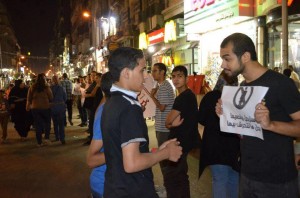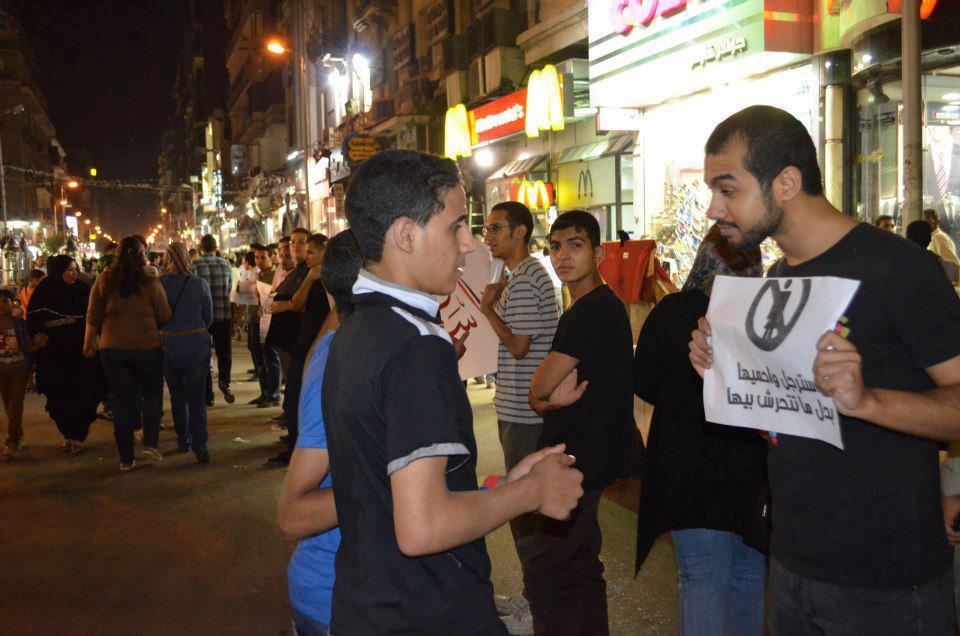
DNE Archive
Protests are being held inside the Assiut University Tuesday at noon against the death of an Assiut village girl, Eman Mustafa, according to protest leader and medical student, Mo’men Assem Hassan.
16 year-old Mustafa was walking with a friend in Cablat village, Assiut, when she was sexually harassed. She turned to face her harasser, spitting at him and vowing that she would claim her “rights” back, only to have him beat her and then shoot her with an automatic rifle, according to Al-Arabiyya news.
“Mustafa is not the victim of her harasser and murderer, but the victim of an entire society which blacklists any girl who stands up and defends herself against harassment as shameless” Hassan said, explaining the protest was also to send a message to college girls that they should defend themselves the way Mustafa did.
Hassan told the Daily News Egypt that the harasser who shot Mustafa has a criminal record and is still not in custody. The police forces at Al-Fatah police centre are not too weak in numbers to arrest him, according to Hassan, who added that the journalist who reported Mustafa’s story is now being threatened and unable to return to Cablat village.
The National Council for Women (NCW) strongly condemned the attack in a statement issued Monday, it assigned a volunteer lawyer to file a lawsuit against the accused.
The NCW also urged the minister of interior, Ahmad Gamal Al-Deen, to secure a swift arrest, as well as recommending mosques, churches, and schools spread awareness about the sanctity of a woman’s body.
“This is more than just a harassment case, or even a murder case” Hassan said “it’s about a village girl, neither a political activist nor informed of human rights, yet determined to resist the harasser.”
According to Hassan, there are now calls for a march to be held on 14 October, demanding an anti-harassment law.
The NCW is currently urging the quick implementation of this law. The council has sent a draft to president Mohamed Morsy on 27 August, as well as previously elected assemblies.
The draft law, which took three years of legislators, activists, and civil society members’ work, involved amending the penal code in a manner which criminalises sexual harassment.



